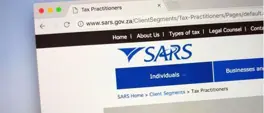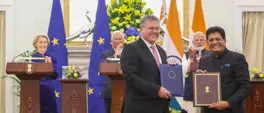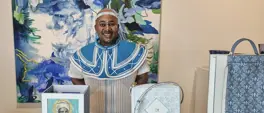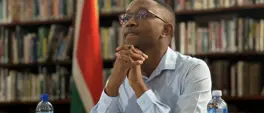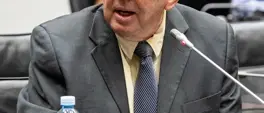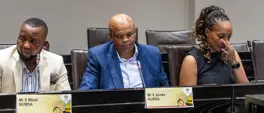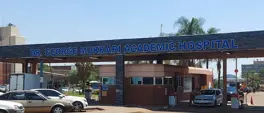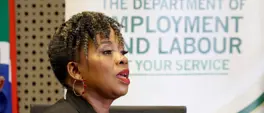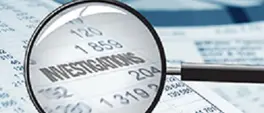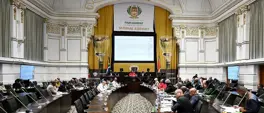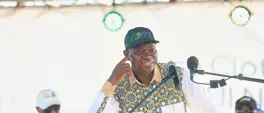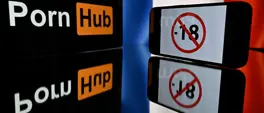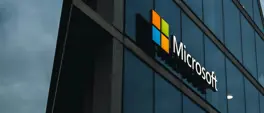Russia says it's getting cold shoulder from Western countries at P20 summit
Lindsay Dentlinger
2 October 2025 | 9:52Deputy speaker of Russia’s federal council, Konstantin Kosachev, said on Thursday that while it was holding constructive talks with other countries represented at the gathering, the same could not be said about its European neighbours.
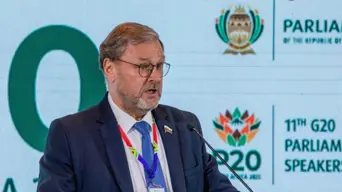
Deputy speaker of Russia’s Federal Council Konstantin Kosachev addressing the P20 on debt sustainability in Kleinmond, Western Cape. Picture: Parliament/Zwelethemba Kostile
KLEINMOND - Russia says it’s getting the cold shoulder from Western countries represented at the G20 meeting of parliamentary speakers underway in Kleinmond in the Western Cape, as it looks to smooth over tensions with its detractors on the sidelines of the summit.
Deputy speaker of Russia’s federal council, Konstantin Kosachev, said on Thursday that while it was holding constructive talks with other countries represented at the gathering, the same could not be said about its European neighbours.
During debate on ensuring debt sustainability for low-income countries, Kosachev said Russia supports efforts by developing countries to become more self-reliant and less dependent on Western aid.
Kosachev said the unbalanced nature of global lending and investment result from neo-colonial policies of the West, which is taking advantage of its dominant position in global finances.
"At the same time, debt restructuring is an uphill battle for developing countries. Efforts to resolve the debt issue for developing countries must be based on the principles of non-discrimination and equal access to credit from multilateral financial institutions."
Kosachev has also taken a swipe at the United Kingdom, Germany and Italy, which during opening statements on Wednesday, spoke about the impact of the war in Ukraine on declining multilateralism.
"We, the Russian delegation, have here so many bilateral meetings, but not with the Western countries, where we do have certain tensions. We are here to talk to each other. We are open for this kind of communication."
Kosachev’s remarks come after the European Union sent four billion euros in frozen Russian assets to Ukraine.
Get the whole picture 💡
Take a look at the topic timeline for all related articles.
